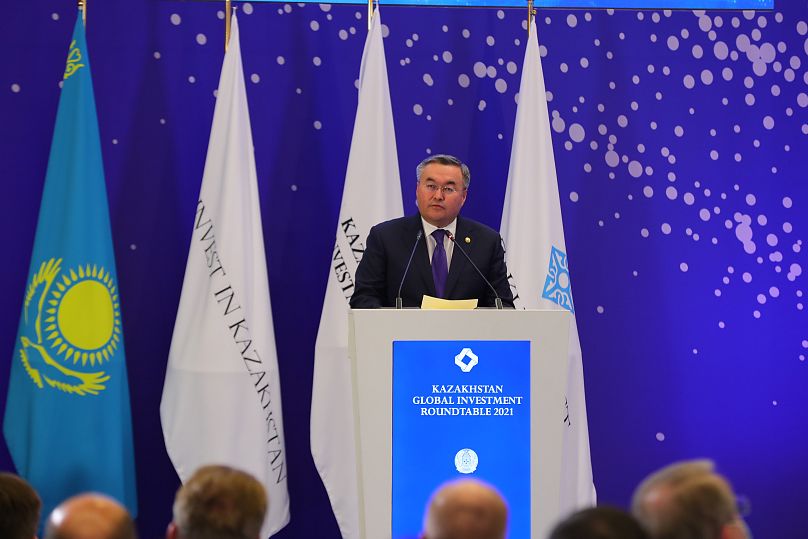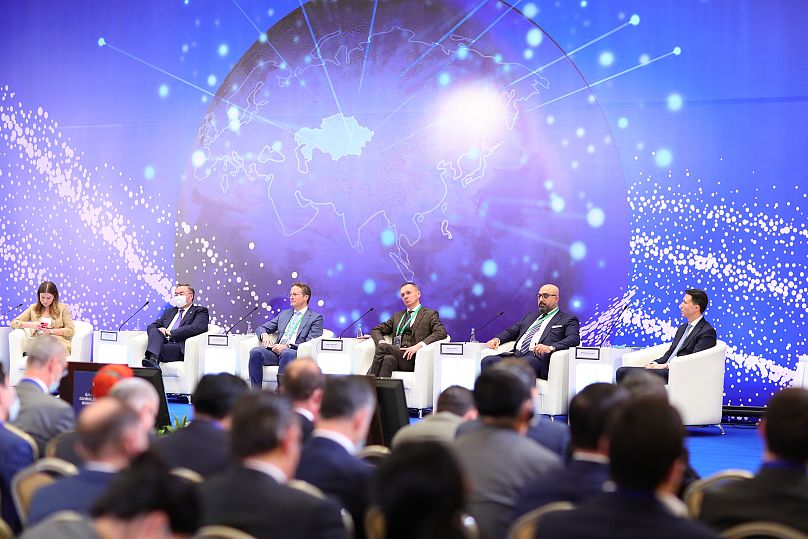Senior government figures and major investors were among those who attended the fourth Kazakhstan Global Investment Roundtable (KGIR), which this year celebrated the 30th anniversary of the country’s independence.
In that time, Kazakhstan’s economy has steadily increased to become the largest in Central Asia. A keystone of the government’s strategy to maintain this growth is its investment policy, which includes tax incentives and stabilising measures to attract foreign investors.
Held on December 7 in the capital city of Nur-Sultan, the KGIR forum was conducted in a new hybrid format that allowed more than 1,100 online participants to join around 400 attendees. These included government members, domestic and international business representatives, leading financial investors and a range of experts from more than 50 countries.
Tapping into Kazakhstan’s potential
Kazakhstan’s minister of foreign affairs Mukhtar Tileuberdi, who chaired the forum, opened the event by highlighting some of the country’s successes since the declaration of independence in 1991. Over the past 30 years, he pointed out, foreign investors have pumped around US$370 billion into the economy.
Tileuberdi spoke of efforts to make Kazakhstan an inviting prospect for international corporations. Key among these is its associate membership, since 2017, of the OECD Investment Committee, and its commitment as a signatory of the declaration on international investment.
Until now, the Kazakh economy has flourished thanks largely to the country’s vast reserves of oil and gas, but investors see untapped potential in renewable energy production and several other industrial sectors. Vast tracts of arable land and the proximity to major markets, such as China, the Middle East and Russia, for example, makes for perfect agribusiness opportunities.
He expressed hope that the forum would “give impetus to further strengthen partnerships with world leaders of the business community.” Current investors were honoured with a series of awards, in which companies investing in Kazakhstan were nominated for categories such as “long-term partnership”, investment activity”, “innovative production” and “sustainable development”.
These companies included energy industry corporation Chevron, French multinational TotalEnergies, Hevel Energy Group, Georgian Industrial Group, Goldbeck Solar, Paris-based Danone, Swiss asset manager INOKS Capital, Polish pharmaceutical company Polpharma, and French dairy multinational Lactalis and many others.
Speakers included representatives of multinationals already working in Kazakhstan: Sergey Kolesnikov, president of Russian TechnoNICOL; Huseyin Arslan, president of the Turkish YDA Group; Joachim Goldbeck, general director of German photovoltaic specialists Goldbeck Solar; Alois Schonberger, founder of Polish company Polcotton; and Gonench Dyryk, chairman of the board of Kazakh-Turkish healthcare company Orhun Medical.
Key players from a range of industries were also able to take part in a number of B2B events in which they were able to discuss various issues surrounding foreign investment and potential projects in the country.
Agreements totalling US$2.1 billion
Though still in its relative infancy, the Roundtable yet again proved a huge success, and resulted in business agreements valued at over US$2.1 billion. These included a deal with Polcotton to construct ten hectares of greenhouse complexes in the region of Turkestan for the agricultural export market.
With the ongoing pandemic still a major factor in planning forthcoming projects, a deal for the production of syringes and gloves, along with nonwoven fabrics, was signed by the Swiss M3 Groupe. Facilities will be located in the Almaty region.
Other moves in healthcare included a contract for the construction of a 1,000-bed clinic and diagnostic centre in Shymkent. This was signed by Kazakh Innovative University LLP and China Machinery Engineering Corporation. Government investment agency Kazakh Invest also signed a deal with Orhun Medical to build a multidisciplinary hospital in Almaty.
Kazakhstan’s history was shaped in part by its position on international trade routes, an advantage it is still able to leverage centuries after the time of the Silk Routes. This geographical bonus was noted several times during the forum and was a persuasive factor in the creation of a milk processing plant agreed with Qatari company Baladna, Dinara Group Agricultural Holding and Kazakh Invest.
Other deals were signed with Chinese, Turkish and Indian multinationals in the fields of mining, metallurgy, mechanical engineering, energy and pharmaceuticals, inspired by the Kazakh government’s financial and logistical incentives.
The gradual move from dependency on oil and gas and the ever more efficient implementation of investment projects indicate that Kazakhstan is set to remain the economic powerhouse of the region.



